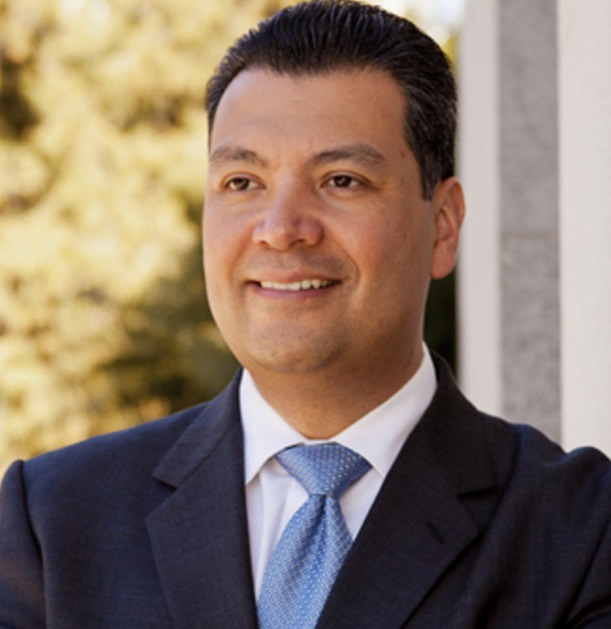THE HUTCHINSON REPORT
By Earl Ofari Hutchinson
Contributing Columnist
Gov. Gavin Newsom finally made his long-awaited decision Dec. 22 on who would fill Kamala Harris’s Senate seat. The grand prize went to Secretary of State Alex Padilla.
Newsom traveled a tough road to get to Padilla. That shouldn’t be a surprise. The instant that Joe Biden tapped Harris to be his running mate, the murmur was who will fill her seat if Biden wins?
Should it be a Black woman because Harris is a Black woman? Should it be a Latino because California has never had a Latino senator? Or should it be a bonafide progressive no matter the color or gender?
The murmur is no longer a murmur. There’s now fierce jockeying for her replacement. Advocacy groups of one stripe or another demand that one of theirs fill her seat.
The fight over Harris’s replacement was a high stakes battle for a lot of reasons. Start with California.
It’s the biggest, most populous, richest, most politically trend setting state. It’s also the nation’s most ethnically diverse state.
That gives us clout and a cachet far greater than any other state. But there are also the towering problems that come with being a big, prosperous, non-stop growth state.
Land, water use, development issues, business growth, taxation and revenue flow, transportation and infrastructure improvements are contentious issues that always spark furious fights between political, industry and watchdog activist groups.
That’s just the start. California is the poster state for an America that in the next couple decades will be a majority-minority nation. Hispanics, Asians and Blacks will outnumber whites.
That will have even more stark implications for racial, social and political change in the country. The nation’s ethnic growth pain has been felt in California for a long time on an array of heated issues from gentrification to affirmative action battles.
There is also the great worry over California’s other senator, Dianne Feinstein. She took much heat from many Democrats for what they called her listless, aimless non-challenge at the Senate Judiciary Committee confirmation hearing of hard right Supreme Court nominee Amy Coney Barrett.
Many openly question whether Feinstein is operating at full power. There have been calls for her resignation. Feinstein almost certainly won’t resign, at least any time soon.
So, getting the right occupant in the junior senator seat is even more crucial. He or she will have to carry a lot of political water for the state going forward. The senate is simply too vital to not have the right person in the post.
The Senate, not the House or even the White House, is the real power seat in American politics. A Republican-controlled Senate can repeatedly delay, obstruct, gut and torpedo initiatives and legislation of a Democratic president from the budget to appointments at nearly all levels.
The Senate is the ultimate in an elite, political body. It is loaded with a labyrinth of arcane procedures and rules that ensures that only the most moderate, finely honed and compromised legislation is passed. The Senate’s dominance doesn’t end with fine-tuned legislation, but appointments and confirmations.
It is the sole determiner of who sits on the U.S. Supreme Court and the lower federal court benches and who bags key spots in federal agencies. These are all top-grade posts that initiate, make and implement crucial policy decisions.
The Senate majority leader has virtually dictatorial control over which of the president’s nominees are put to a confirmation vote.
The devastating result of that power was on full display with the dozens of judicial and agency posts that were endlessly delayed, or outright sabotaged by the Republican-controlled Senate during President Barack Obama’s final term.
With Biden in the Oval Office, California’s two Democratic senators are poised to play an even bigger role in the coming legislative battles. A major part of the battle will be over federal revenue and spending. Much depends on California getting as much of the federal budget pie as possible.
Reapportionment almost certainly will increase California’s political standing and clout. Since it’s based on population growth, the state will get more representatives.
This will bring increased pressure on the two senators to be strong advocates for progressive policies. Harris began to fill the role of a strong, vocal advocate for progressive causes. It served her well, brought her to the attention of Biden, and eventually made her the top candidate to be his running mate. Biden needed Harris in part because of her progressive bluntness and in part because of her California pedigree.
Her replacement then required the requisite blend of being a progressive, with legislative acumen, the ability to work across the aisle, and the know how to work the levers of congressional lawmaking.
It’s not a position for on-the-job training. The new senator will have to hit the ground running to deal with the crushing needs and demands of the state and its constituents.
The names of seasoned politicos had been bandied about as Harris’s likely replacement. They all brought something to the political table.
Newsom evidently felt Padilla filled all those spots. Time will tell if he was right.
Earl Ofari Hutchinson is an author and political analyst. He is the author of “What’s Right and Wrong with The Electoral College” (Middle Passage Press). He also is a weekly co-host of the Al Sharpton Show on Radio One and the host of the weekly Hutchinson Report on KPFK 90.7 FM Los Angeles.












